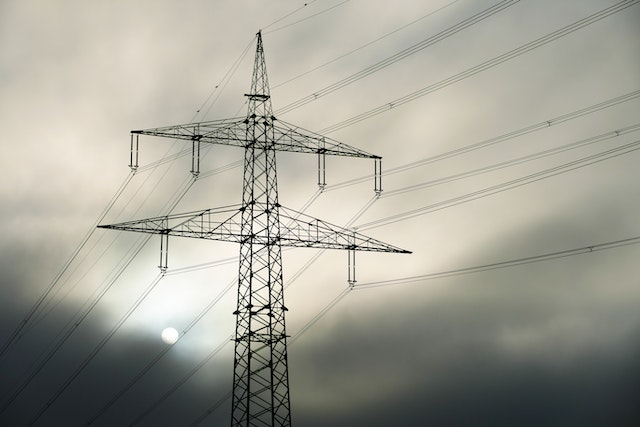Electrical Testing in Modinagar
Introduction
In today’s technologically advanced world, electricity plays a crucial role in powering various aspects of our lives. Whether it’s the lights in our homes, the machinery in industries, or the gadgets we use daily, electricity is an indispensable part of modern society. However, the seamless functioning of electrical systems can sometimes be taken for granted. This is where electrical testing comes into the picture.
Electrical testing is a comprehensive process that evaluates the integrity and efficiency of electrical installations, ensuring they comply with safety standards and regulations. In Modinagar, a city known for its industrial and residential areas, the significance of electrical testing cannot be emphasized enough. This article will delve into the various aspects of electrical testing in Modinagar, exploring its importance, types of tests, benefits, and frequently asked questions to shed light on this critical subject.
Electrical Testing in Modinagar: Understanding the Basics
Electrical testing involves a series of assessments performed on electrical systems, equipment, and components to identify potential faults, hazards, or inefficiencies. These tests are carried out by qualified professionals, such as electrical engineers and technicians, to ensure the safety and reliability of the electrical infrastructure. They are essential for preventing electrical accidents, equipment failure, and downtime, especially in a city like Modinagar with its diverse industrial and residential landscape.
The Significance of Electrical Testing
Electrical testing holds immense importance in Modinagar and any other location due to the following reasons:
1. Ensuring Safety
Safety is paramount when dealing with electricity. Faulty electrical systems can lead to electrical shocks, fires, and other hazardous incidents. Regular electrical testing helps identify potential issues and ensures that electrical installations adhere to safety standards, mitigating risks significantly.
2. Preventing Downtime
Industries and businesses in Modinagar heavily rely on electrical machinery for their operations. Unexpected breakdowns can lead to substantial financial losses. Electrical testing helps detect issues beforehand, allowing for timely maintenance and preventing costly downtime.
3. Compliance with Regulations
Electrical systems must comply with local and national regulations to ensure the safety of occupants and workers. Compliance with these standards is necessary for obtaining licenses and insurance, making electrical testing a critical component of any building’s maintenance.
4. Extending Equipment Lifespan
Regular electrical testing helps identify and address issues that may cause premature wear and tear on electrical equipment. By resolving these problems, the lifespan of electrical assets can be significantly extended, reducing long-term expenses.
5. Sustainable Practices
Electrical testing also promotes sustainable practices by identifying areas of energy wastage. By optimizing electrical systems, businesses and individuals can contribute to energy conservation efforts.
Types of Electrical Testing
Electrical testing encompasses various types of assessments, each serving a specific purpose. Some of the most common types of electrical testing include:
1. Insulation Resistance Test
The insulation resistance test measures the effectiveness of the insulation materials in electrical equipment. It helps detect any leakage current, which could lead to short circuits or electrical accidents.
2. Earth Continuity Test
This test verifies the continuity of the protective earth conductor in electrical installations, ensuring a safe pathway for fault currents to ground.
3. Earth Resistance Test
The earth resistance test measures the resistance of the grounding system, which is crucial for dispersing fault currents safely into the ground.
4. Polarity Test
The polarity test checks the correctness of connections in electrical outlets and switches to ensure proper functioning and safety.
5. Load Testing
Load testing involves assessing the performance of an electrical system under specific loads to ensure it can handle its intended use.
6. Circuit Breaker Testing
This test evaluates the effectiveness of circuit breakers in interrupting the flow of current under fault conditions, preventing damage to electrical systems and equipment.
7. RCD Testing
Residual Current Devices (RCDs) are vital safety devices that protect against electrical shocks. RCD testing ensures these devices function correctly.
Benefits of Electrical Testing in Modinagar
Electrical testing offers numerous advantages that contribute to the overall safety, efficiency, and reliability of electrical systems in Modinagar:
1. Enhanced Safety
By identifying potential hazards, electrical testing significantly reduces the risk of electrical accidents and related injuries.
2. Improved Energy Efficiency
Detecting energy wastage through testing allows for the implementation of energy-saving measures, leading to reduced energy consumption and costs.
3. Compliance with Standards
Adhering to electrical testing standards ensures legal compliance and eliminates the possibility of fines or penalties.
4. Reduced Downtime
Regular maintenance resulting from electrical testing prevents unexpected breakdowns, minimizing downtime and maximizing productivity.
5. Long-Term Cost Savings
Addressing electrical issues proactively helps avoid expensive repairs or replacements in the future, saving money in the long run.
6. Peace of Mind
Knowing that electrical systems have been thoroughly tested and are safe provides peace of mind to building occupants and business owners alike.
Frequently Asked Questions (FAQs)
Q: Is electrical testing mandatory in Modinagar?
Yes, electrical testing is mandatory in Modinagar, as it is in most places, to ensure the safety of electrical systems.
Q: How often should electrical testing be conducted?
The frequency of electrical testing depends on the type of installation and the regulations applicable. Generally, commercial and industrial buildings require more frequent testing than residential properties.
Q: Can I conduct electrical testing myself?
Electrical testing should only be performed by qualified professionals with the necessary expertise and equipment. Attempting DIY testing can be dangerous and may lead to inaccurate results.
Q: Does electrical testing cover both internal and external electrical systems?
Yes, electrical testing encompasses both internal and external electrical systems to assess the overall safety and reliability of the entire electrical installation.
Q: How long does electrical testing usually take?
The duration of electrical testing varies depending on the size and complexity of the electrical installation being tested. It can range from a few hours for small properties to several days for large industrial facilities.
Q: What should I do if electrical testing reveals issues?
If electrical testing identifies any problems, it is essential to address them promptly. Hiring a qualified electrician to perform necessary repairs or maintenance is crucial to ensuring safety and compliance.
Conclusion
Electrical testing in Modinagar is a vital process that ensures the safety, efficiency, and compliance of electrical systems in both residential and industrial settings. By proactively identifying potential hazards and inefficiencies, electrical testing helps prevent accidents, downtime, and unnecessary expenses. Hiring qualified professionals to conduct regular electrical testing is essential for creating a secure and reliable electrical infrastructure.




